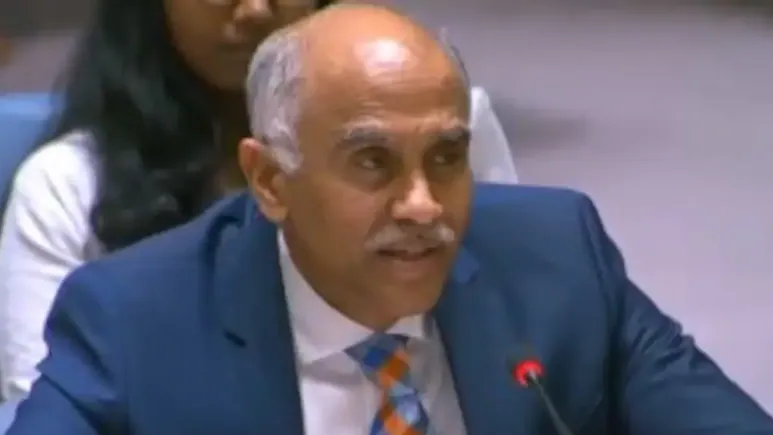India’s Strong Stand at the UN Security Council: Exposing Pakistan’s Terrorism and Child Rights Violations
- MGMMTeam

- Jun 26, 2025
- 3 min read
In a significant diplomatic moment at the United Nations Security Council (UNSC), India took a firm stand against Pakistan, shedding light on Islamabad’s sustained support for terrorism and the egregious violations of child rights within its borders. This address comes amid growing international concern over Pakistan’s harboring of terror groups and its failure to protect vulnerable populations, especially children, from exploitation and abuse. India’s articulation at the global forum not only reaffirmed its commitment to global peace but also underscored the urgent need for collective action against terror networks operating with state complicity.

India’s Accusation of Pakistan’s Terror Sponsorship
India's representation at the UNSC meticulously detailed Pakistan’s role as a state sponsor of terrorism. Highlighting credible evidence, the Indian delegation pointed out Pakistan’s consistent support for various terrorist outfits that operate in and around the region, particularly those that perpetrate violence in Jammu and Kashmir. India emphasized that such activities not only destabilize South Asia but also pose a threat to international peace and security.
The Indian envoy articulated that Pakistan’s inability or unwillingness to dismantle terror infrastructure and prosecute terror leaders creates an enabling environment for continued violence. This narrative is supported by reports from international agencies, including the Financial Action Task Force (FATF), which has repeatedly expressed concerns about Pakistan’s shortcomings in curbing terror financing.
Addressing Child Rights Abuses in Pakistan
Alongside terrorism, India brought to light Pakistan’s alarming record of child rights violations. The Indian statement underscored the systematic exploitation of children in Pakistan, including recruitment of child soldiers, use of children in terror-related activities, and deprivation of basic rights such as education and health. These practices contravene numerous international conventions, including the UN Convention on the Rights of the Child, to which Pakistan is a signatory.
India's stance drew attention to the plight of children caught in conflict zones and areas controlled by militant groups. The exploitation of children not only perpetuates cycles of violence but also erodes the moral fabric of societies. By spotlighting these abuses, India urged the international community to demand accountability and foster initiatives that protect children in conflict zones.
Global Context and International Response
India’s address at the UNSC resonates with a broader international narrative that calls for stricter measures against nations harboring terrorism. Pakistan’s role has been scrutinized by various global bodies, including the United States, the United Kingdom, and the United Nations, which have called upon Islamabad to take decisive action against terror groups within its territory.
However, Pakistan’s denials and lack of effective measures have often stalled progress. India’s strong diplomatic efforts aim to galvanize the UNSC and member nations to adopt a more unified and firm stance against terrorism and related human rights abuses.
Moreover, Pakistan’s challenges in child protection have been documented by organizations such as Human Rights Watch and UNICEF. These reports highlight issues ranging from child labor to recruitment by militant groups, painting a grim picture that demands urgent intervention.
Conclusion: The Path Forward for Regional and Global Security
India’s forthright presentation at the UN Security Council serves as a critical reminder that terrorism and human rights abuses remain significant threats to peace and development. By exposing Pakistan’s complicity in these issues, India has reinforced the need for international cooperation to hold perpetrators accountable and to safeguard vulnerable populations, especially children.
This diplomatic engagement is more than a bilateral critique; it is a call to the global community to act decisively against terrorism and human rights violations. The path to lasting peace in South Asia hinges on eradicating terror networks and ensuring that children everywhere enjoy their fundamental rights free from exploitation and fear.




Comments